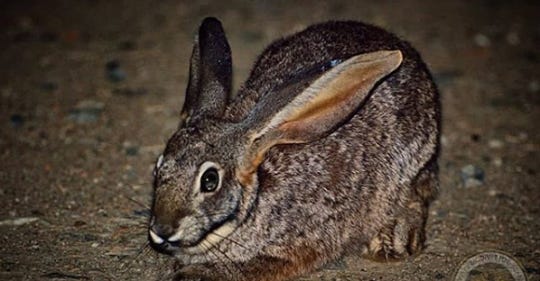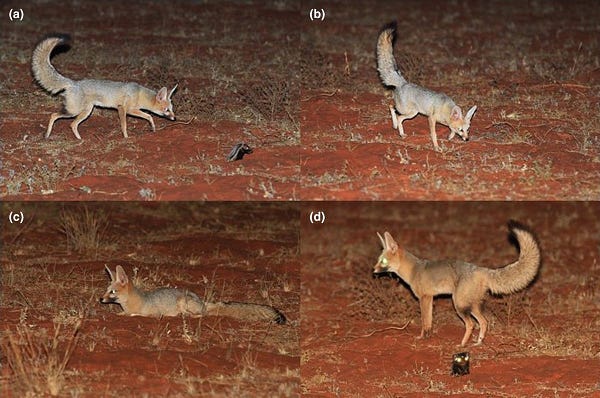Fears for riverine rabbits + Crafty Cape foxes + Wild dogs poisoned
Deadly disease outbreak threatens South Africa’s critically-endangered rabbits
There has been an outbreak of deadly Rabbit Haemorrhagic Disease (RHD) in a region of South Africa that is home to Africa’s only indigenous burrowing rabbit, the critically-endangered riverine rabbit.
The outbreak is in the arid Karoo region, in South Africa’s Western and Northern Cape Provinces.
“The disease results in a high number of deaths in rabbits and hares and animals die suddenly with bleeding in the organs such the liver, kidney and spleen,” said a statement from South Africa’s department of agriculture, land reform and rural development.
It said this is the first time the disease has been recorded in South Africa. It’s unclear how it entered the country. The importation of rabbits is forbidden.
“Investigations are underway to determine whether illegal importation could be the source,” the department said.
Both the riverine rabbit and the red rock rabbit, another indigenous species found in the Karoo, are highly susceptible to the disease, it added.
Conservation group, the Endangered Wildlife Trust, said so far the outbreak had killed pet rabbits, scrub hares, Cape hares and one red rock rabbit.
There is a vaccine to prevent the disease in domestic rabbits, but it isn’t available in South Africa.


Cape foxes and striped polecats observed in intriguing hunting partnership
Cape foxes and striped polecats have been observed hanging out together in the Karoo, South Africa, and on one occasion a pair was even seen hunting together.
Cape foxes and striped polecats — famous for their skunk-like method of self-defence — were seen together 16 times over a four-year period at the privately-owned Tswalu Kalahari Reserve, in the Northern Cape province.
In one detailed observation, the polecat was seen going down the hole of a ground squirrel burrow, while the crafty fox lay in wait at the surface.
Thanks to the polecat’s efforts underground, an unidentified rodent popped out of a tunnel, and into the jaws of the waiting Cape fox. The fox and the polecat then headed off together.
“The Cape fox had its tail raised whenever the two were together,” according to a group of researchers that has written up its observations in the African Journal of Ecology.
While predominantly an insect-eater, the diminutive polecat may benefit from the fox’s ability to detect a wider range of prey, the authors note.
They say the partnership resembles that forged between coyotes and American badgers.
The home range of a Cape fox is around 6,600 acres (2,600 hectares). Cape foxes and striped polecats were observed together at sites across 24,000 acres (9,700 hectares) of the Tswalu reserve, meaning there could be at least three different pairs involved in these partnerships.


Entire wild dog pack poisoned in Malawi
An entire pack of critically-endangered African wild dogs has been killed by poison at a waterhole in Malawi’s Liwonde National Park, a little more than a year after they were reintroduced.
African Parks, the private organization that helps Malawi’s department of national parks and wildlife to manage Liwonde, says its staff were alerted to the fact that something was wrong after getting delayed GPS location reports from the satellite collars that some of the dogs were wearing.
A search party was sent out and found the dead animals. The poacher responsible for lacing the waterhole with poison was probably trying to kill small game or birds. An attempt had been made by the poacher to hide the carcasses and to get rid of the satellite collars down a termite hole.
“It was incredibly unfortunate that the victims were our entire wild dog population which further counters conservation efforts in the Park,” a statement said.
Across their range African wild dogs are in trouble. There are only around 700 breeding pairs left throughout Africa.
Wild dogs were only reintroduced to Malawi last year from populations in Mozambique and South Africa.
Eight were released into Liwonde, and another six went to Majete, a wildlife reserve in the southwest of the country. Both populations had produced pups in recent months.




